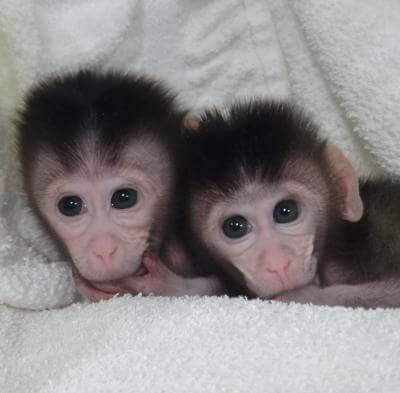Precise editing of genes in monkeys allows them to become models for the study of serious diseases in humans

Monkeys are used as models for the study of diseases in humans due to their proximity to us, but so far all efforts to change genes in the bodies of primates have failed. In a study published in the January 30 issue of the superscript Cell, researchers from China were able to make changes in the genome of monkeys for the first time using efficient CRISPR/Cas9 gene editing methods
Through them, the research develops news for the development of more effective treatments for a wide variety of human diseases.
"Our study showed that the CRISPR/Cas9 systems allow simultaneously disrupting two genetic targets in one step instead of causing unwanted mutations" says the study's editor, Jiahao Sha from Nanjing Medical University. "Given the fact that many human diseases are caused by genetic anomalies, targeted genetic adaptation in monkeys is of indescribable value for creating models for human diseases."
The Jiahao Sha system is a genetic editing tool that allows targeting specific DNA sequences in the genome. Cas9 proteins are directed by the molecule known as "proteins guided by a single RNA" to designated sites in the genome, which produce mutations by inserting stops in the DNA double helix. So far, the CRISPR/Cas9 system and other targeted gene editing technologies have been successfully tested in animals such as mice and rats, but not in primates.
She and his colleagues at Nanji University, the Yunnan Primate Biogeographic Research Laboratory and the Coming Biomed Company. The researchers injected a messenger RNA molecule encoding Cas9 in addition to proteins guided by single-guide RNAs designed to target three specific genes, into embryos in the first stage of their development in macaque monkeys. After sequencing DNA from 15 embryos, they discovered that eight of the embryos showed evidence of a simultaneous mutation in both target genes.
The researchers transferred the transgenic embryos to females who served as surrogate mothers, and one of them gave birth to twins. After sequencing the DNA of the cash registers, they discovered the double mutation in both. Moreover, the CRISPR/Cas9 system did not create mutations in other genomic sites, which proves that it is a tool that will not cause unwanted side effects when applied to monkeys.
"With the help of the precise genomic targeting of the CRISPR/Cas9 system, we anticipate the ability to produce specific disease models in monkeys, which will significantly advance the development of treatment strategies in biomedical research." says Weizi JM at the Yunnan Primate Biogeographic Research Laboratory and a study partner.
For the announcement of the researchers on the Eurekaler website
In the same topic on the science website:
- University research vice presidents call for halting laws that would make animal testing impossible
- Breakthrough in monkey cloning
- Selfish clone

One response
It could be that the Chinese will consider human cloning an achievement, it would not surprise me, because China is not the most moral country in the world.